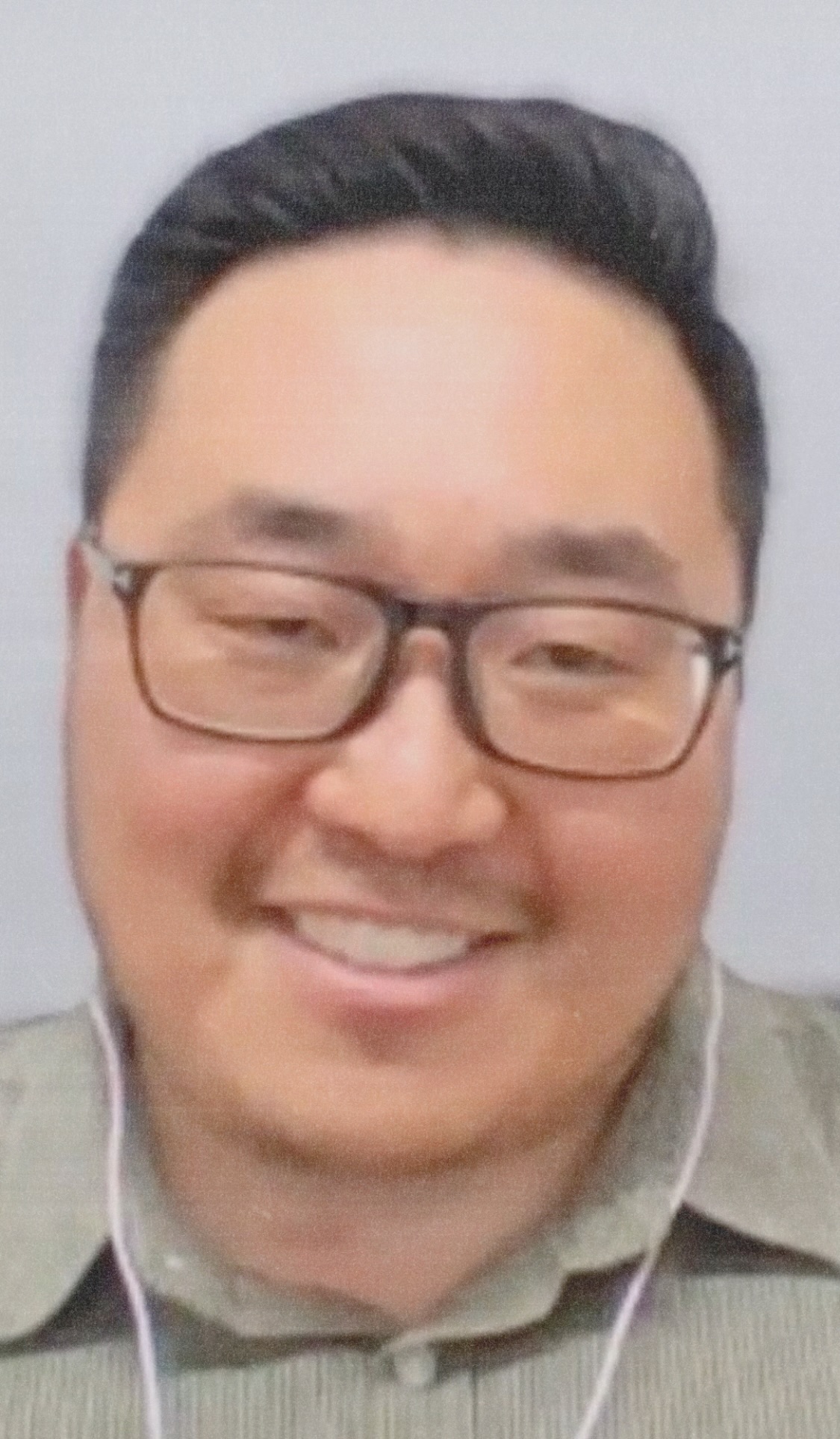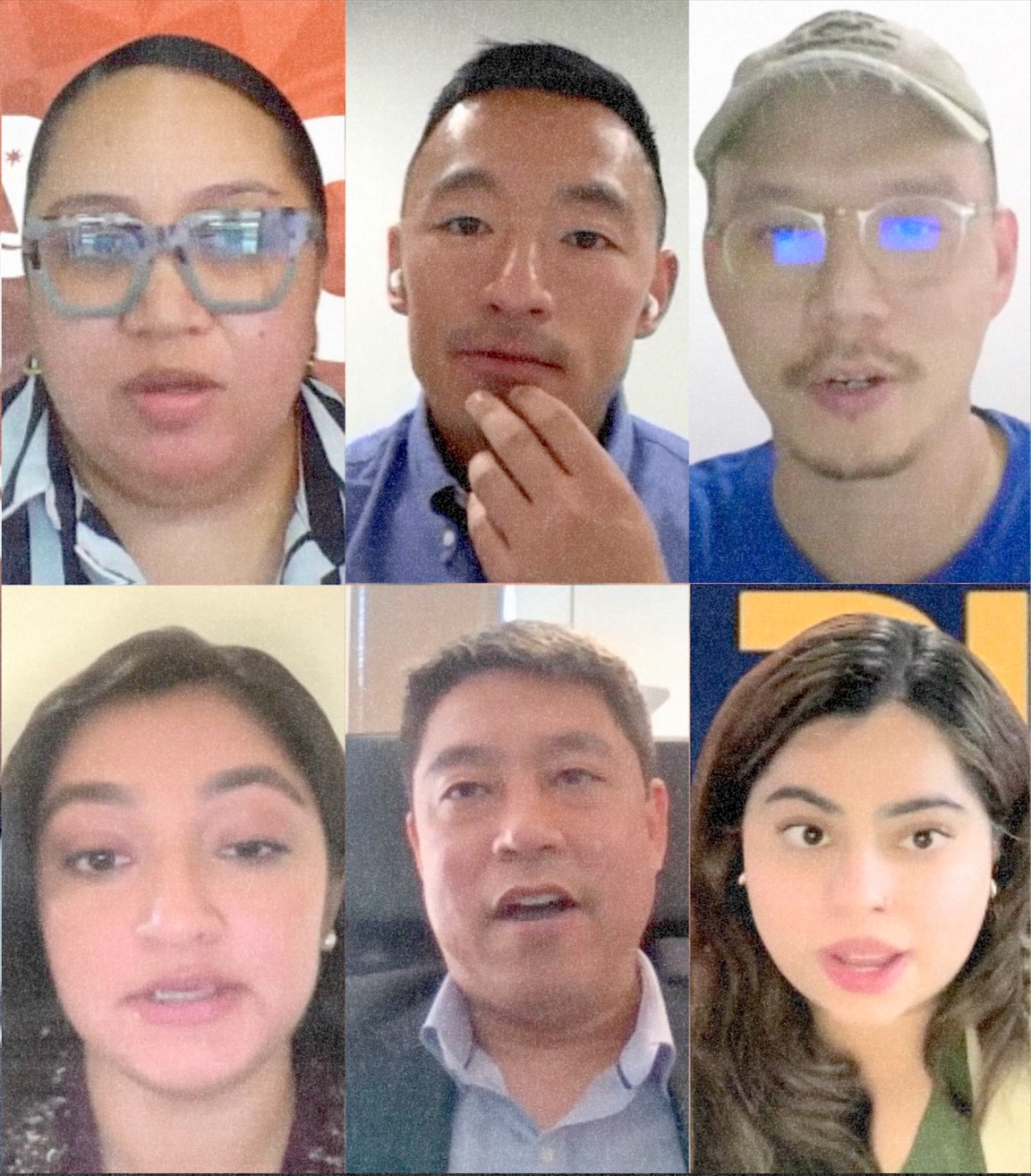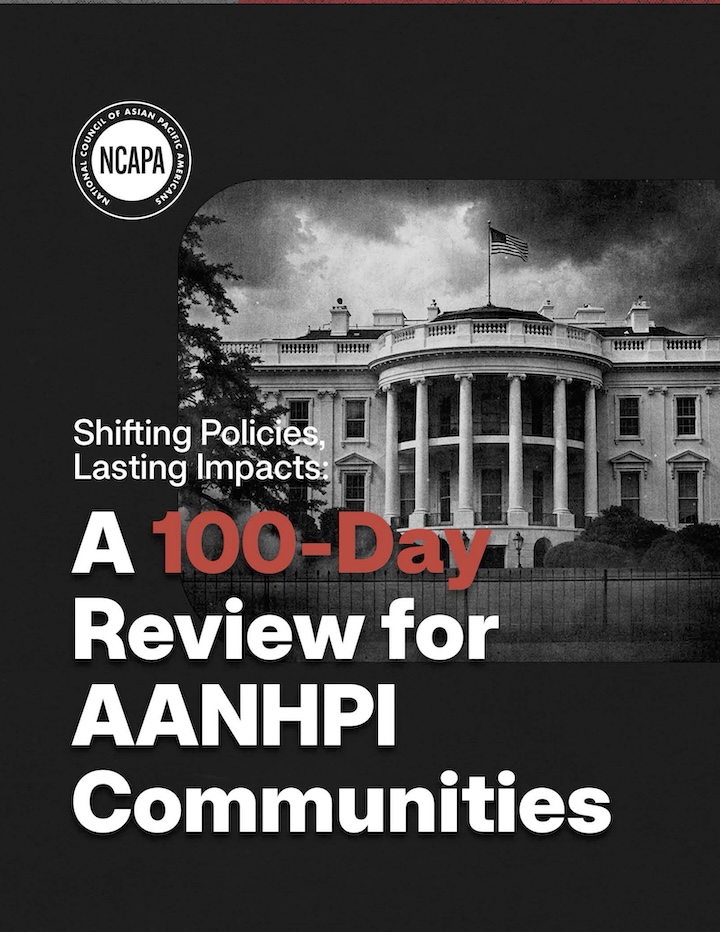Report, webinar push back against
anti-immigrant, anti-DEI actions, neglect of due process norms.
By George Toshio Johnston, P.C. Senior Editor
Among the many outcomes in the aftermath of President Donald Trump’s second first 100 days, one was a May 13 report issued by the National Council of Asian Pacific Americans or NCAPA, “a coalition of 40 of the leading Asian, American Native, Hawaiian, Pacific Islander civil rights organizations,” that took Trump 2.0 to task.
The scathing first paragraph of the 74-page communiqué, “Shifting Policies, Lasting Impacts: A 100-Day Review for AANHPРІ Communities,” reads: “During the first 100 days of the second Trump Administration, amidst the flurry of Executive actions, the experiences and needs of Asian Americans, Native Hawaiians and Pacific Islanders (AANHPIs) continue to be obscured. The sheer scale and scope of President Trump’s actions are staggering. However, the impact of his agenda has been devastating for countless community members.”
The report focused on eight areas: AANHPI Visibility, Civil Rights, Immigration, Health, Education, Housing and Economic Justice, Destruction of Civil Society and Environment. Its timing — coinciding with May’s 2025 Asian American and Pacific Islander Heritage Month and just days after the 50th anniversary of the April 30, 1975, fall of Saigon, which led to a huge resettlement of diverse Southeast Asian people across the United States— was noted by NCAPA National Director Greg Orton during the May 14 webinar that accompanied its release.
Participating in the discussion were representatives from some of the organizations that comprise NCAPA, including Empowering Pacific Islander Communities Director of National Policy and Advocacy Sina Uipi; Southeast Asia Resource Action Center National Deputy Director Kham Moua; National Korean American Service and Education Consortium Director of Organizing Youngwoon Han; Sikh Coalition Senior Federal Policy Manager Mannirmal Kaur; Japanese American Citizens League Executive Director David Inoue; and South Asian Public Health Assn. President Samira Khan.

Greg Orton
In his introductory remarks, Orton stated rhetorically, “Some might ask, ‘Why? Why are we doing this?’ The answer is very simple. We’re also in a time where perception is more and more becoming reality, and if some would have their way, truth is defined by those who have power — and our job at NCAPA, our job as community advocates and organizers, is to make sure that the truth about our community … [is] properly accounted for.”
First up was EPIC’s Uipi, who said, “What these first 100 days means is just so much education that needs to happen in our communities, especially around ‘know your rights’ with immigration. . . . It really matters who is sharing information that is not misinformation, is not disinformation.”
SERAC’s Moua, after explaining that his Washington, D.C.-based organization’s primary areas of focus are immigration, education and health, noted that “there’s a lot of fear and uncertainty in our communities.”
Referring to Immigration and Customs Enforcement, Moua added, “ICE continues to … loom in our communities, and this administration is particularly retaliatory, creating a lot of fear about whether or not people can even safely exercise their First Amendment rights.”
NAKASEC’s Han noted that his immigrant rights advocacy organization, in anticipation of Trump retaking the presidency, updated and relaunched its “Know Your Rights” phone app and to date had more than 28,000 downloads.
“I believe we have translated the app into 24 languages,” he said. The app can be used by non-English speakers to, “with the click of a button,” read out rights in English in an emergency situation so that law enforcement or ICE agents know that they know and are practicing their rights — and also send an emergency text to a contact.

Pictured (clockwise, from upper left) are Sina Oipi, Kham Moua, Youngwoon Han, Samira Khan, David Inoue and Mannirmal Kaur (Composite photo: George Toshio Johnston)
Sikh Coalition’s Kaur noted that its most recent “school climate report” found that 78 percent of Sikh youth had experienced bullying in school. “Even more alarmingly, 10.9 percent of those students reported that the bullying was done by a member of their school staff,” she said.
When Kaur lost her internet connection, Orton brought on JACL’s Inoue, who discussed the historic use of the Alien Enemies Act and how the Trump administration has attempted to misuse it and myriad executive orders in the present.
“I think everyone has probably heard that phrase in some form or another that ‘those who cannot remember the past are condemned to repeat it,’ and in many ways, I think we are really seeing that past repeating itself in real time with the enactment of many of the president’s executive orders that actually seem to intentionally draw from some of the darkest parts of our history,” he said.
Inoue also referred to how, under the current administration, the Army scrubbed from its website of anything that smacked of DEI, or diversity, equity and inclusion, adding that “these website erasures have been particularly insidious” (see March 14, 2025, Pacific Citizen).
As for the contemporary attempts to invoke the Alien Enemies Act, despite it being reserved for use only in times of war, Inoue said, “Our president knows what he is doing as well when he invokes the Alien Enemies Act, despite the fact that we’re not at war, labeling people as enemies without any sort of legal justification. … I think what’s most important about this is all being done without due process.”
SAPHA’s Khan said that under Trump 2.0’s first 100 days “there has been a lot of long-term impact to our communities, especially when it comes to access, affordability and trust in health systems.”
With the first 100 days having passed, Orton asked for some closing thoughts. “We have to keep our communities and our political allies aligned on humane and justice-centric narratives and policy solutions,” said Moua.
“I think the fact that we’re all here together on this call really emphasizes the importance of coalition. . . . They are hitting us with so many different things that might be very specific to certain communities, which can sometimes distract us from the broader picture,” said Inoue. “We can’t do it all on our own. It has to be in collaboration and in coalition with one another.”
“There’s going to be work to be done in the coming years, and it’s not all impossible,” Kaur said. “There’s work we can be doing to lay the groundwork for the future. You know, political tides, they change.”
Building upon Kaur and Inoue’s remarks, Khan said, “I think it’s also important to be partnering with the community, not just serving them” in order to “use their collective power to make change at that local level and then capitalizing on that by then elevating the work that they’re doing at a national level so that we can then have collective power across the country.”
To read the full report, visit ncapaonline.org/100dayreview. To view the webinar, visit tinyurl.com/39xp5wya.




